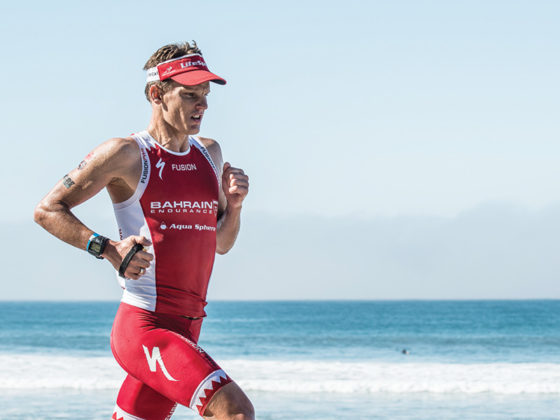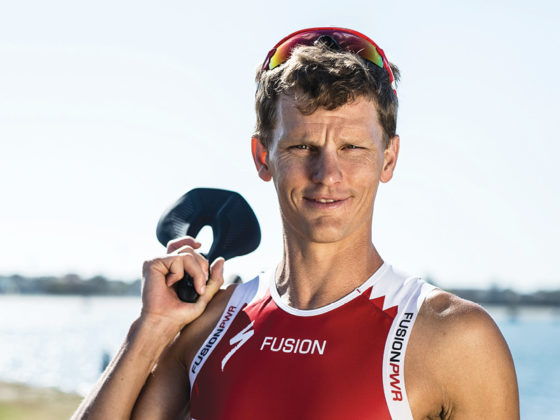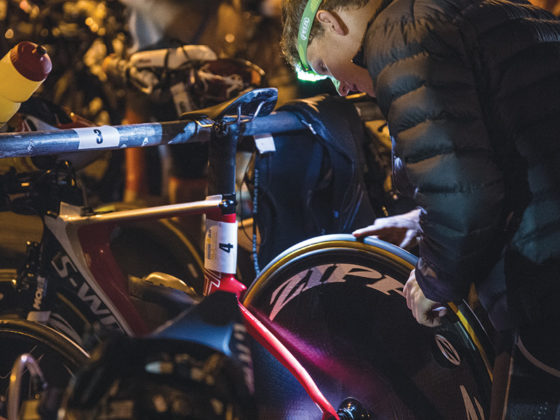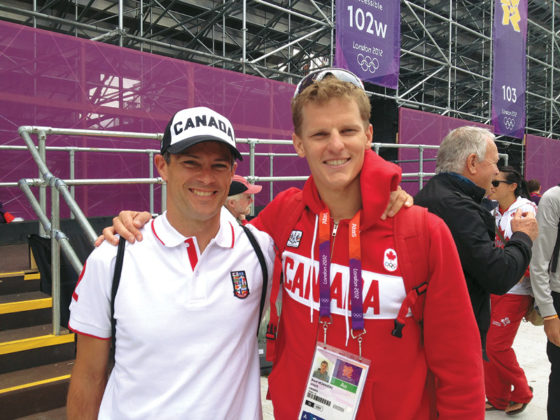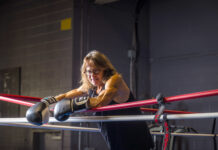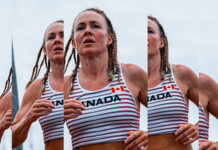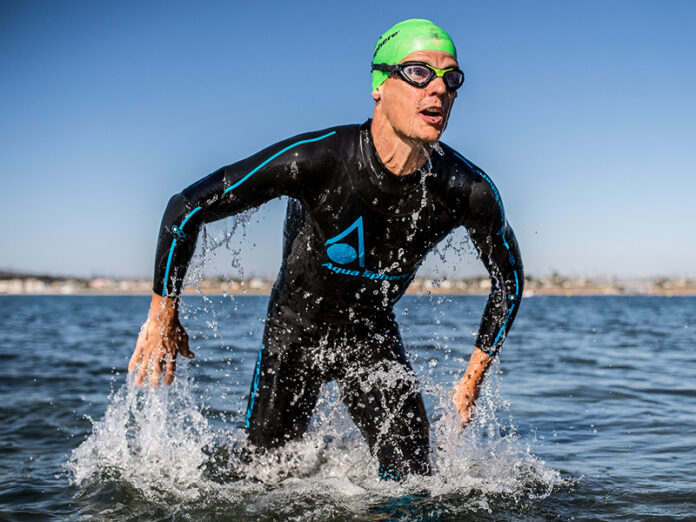
No one has ever stepped up to the startline of an Ironman for the first time and gone faster than Brent McMahon.
At 7:55:48 in Tempe, Ariz., the fastest Ironman debut — ever. Process that for a second. Faster than Jan Frodeno’s debut, faster than Craig (Crowie) Alexander, Peter Reid, Fredrick Van Leirde, Enko Lanos, Cameron Brown. A highlight? Yes. I suspect there’s more Ironman glory to come.
I admire Brent as an athlete — let’s get that out of the way — but far more as a person. Spend five minutes around the man and you quickly understand just how focused and committed he is.
Spend half a day to meet his team, from his partner Carolyn Cooper to coach Lance Watson to chiropractor Jamie Grimes and you start to build a framework around how he does it. He has a world class team.
You get to really know someone when you travel with him for a decade, racing for Canada, spending countless hours in airports, hotels, taxis and a certain Korean spa with Aussie triathlete Greg Bennett, who relays: “I’m sorry, but he just said NO CLOTHES ALLOWED!”
How would I describe Brent? Positive Mental Attitude. The man is PMA. If you are looking to gossip, go find someone else. Bash the system, decry the man pulling the strings, Brent isn’t interested. Have something negative to say about someone else, Brent will ignore you, even pacify you. I am a little embarrassed to admit that on more than one occasion, Brent has pulled me aside and calmly said, “Time to take a breath my friend.”
PMA.
You can see it in his racing, too. Brent is focused, he has a deep understanding of how to draw on all his strength, but he manages to do it with such class and composure because very little fazes him.
One needs look no further than the 2012 Olympics, his second Games in eight years where despite this veteran teammate’s incessant need to be heard, Brent stayed positive and focused.
Do the math on that. Brent fought through injury to qualify for Athens 2004, sacrificing his health and, ultimately, performance to make the team. He was young, driven and on the cusp. Four years later, he had to watch Beijing from the sidelines when he really should have been picked for the team. Most athletes pack their bags and move on after that disappointment, tempted to wallow in the negative. PMA dictates you get back on the horse and keep riding. You recalibrate and, I’m sure in Brent’s case, draw on strong faith, family and friends to stand tall, to get back up, to go again.
Says Kyle Jones, our national team colleague: “It’s no surprise Brent has made such a successful transition to long course racing. He’s a guy who’s always been very strong in all three disciplines. That, combined with his mental strength and attention to detail, provide the makeup of an Ironman champion. I can’t wait to see him tackle Kona. Athletic ability aside, he’s just a great guy. Always a joy to train and hang out with. I can’t think of a better person to share a box of donuts with while travelling the world.”
Meet Brent McMahon, in his words:
ON RACE DAY NUTRITION
Race day nutrition is ultimately derived from my regular daily training regimen. I practise what I will do in races day in and day out. So come race day it is only a matter of calculating the quantities for that specific length of event and conditions. I always try and keep things simple to reduce the opportunities for making mistakes while you body is under the duress of racing. I keep my pre-race meals simple and low in fibre — a pared-down version of my regular diet. Everyone knows my rotisserie chicken and rice is the go-to for the night before the race. Morning of is a combo of eggs and oatmeal with PowerBar gel blasts as a snack in the hour leading up to the start.
ON TRAINING AND TAPER
Typically my biggest weeks of the year come at only two points in the season, February to March and midseason rebuild in July. Each season I begin with a training camp in Maui where I log long miles on the bike and run to build a good foundation for the season. I typically do a swim focus before I head to Maui in January where I am averaging 32-36K a week. I take this block of swimming fitness into the bike/run focused Maui block where the biggest week would be around 500K of cycling and anywhere from 75-90K on the run.
Lance and I have spent years trying different types of taper programs to find what works for me and, even then, it is still changing. I focus on sleep and training around when my body feels ready to do it.
ON OBSTACLES
The biggest obstacle of my career was the decision to continue on the Olympic path to London and the journey that followed after not making the 2008 Olympic team. The 2008 Canadian team selection was somewhat controversial but it wasn’t the disappointment of not being selected that was tough, it was having to decide if I had another four years of motivation and sacrifice in me for London. I was far more philosophical about the situation than the people around me after the Beijing selection and I was able to move on, but I needed to decide in which direction I would head. I had to decide whether to leave Olympic distance for long distance without truly competing at my best at an Olympics, having been injured in the lead up to Athens in 2004. I knew I had a solid career ahead in long distance and non-drafting racing, but was it time to move on or put another four years of my life into London qualification and asking my girlfriend Carolyn, family and friends to make that sacrifice with me. As it turned out, that journey to London was very difficult and the greatest obstacle I have met to date in my career. I ended up being injured for a year and a half and having to condense a two-year qualifying period into 16 months. Ultimately I was able to recover, qualify and compete at the London Olympics.
ON CONFIDENCE
I think it is a combination of how my parents raised me and how I grew up with a coach that believed in building athletes both physically and mentally. My parents instilled the traits of hard work and perseverance, which means sticking to your intentions and being true to yourself and those around you. Verbalizing your goals to those around you makes you more accountable and thus more motivated to achieve them. When you are able to consistently reach those goals, that is where you gain confidence and begin to set the bar higher.
ON COACH LANCE
I have worked with Lance Watson for 20 years. Yes he is my coach, but he has been my “parent” when travelling in Europe when I was 16, my mentor in personal growth, my adviser on business and a friend whenever I need him. We know each other so well that training is just a cohesive blend of drive and expertise. I have doubted myself and my abilities at times over the years, but Lance would set goals and plans that I didn’t think I was capable of, but he knew I could do. Once on those paths that he set, I would inevitably achieve what he had laid out, never to his surprise.
ON FAITH
My faith as a Christian is a part of my life and as such a part of the sport I do. It has shaped and guided me into the person I am and how I approach what I do as an athlete. I am blessed to be able to do what I love for a living and try to always be grateful for this. I turn to my faith and Christian family in those challenging times as an athlete to help persevere, gain strength and stay positive.
Coaching the Kid
Lance Watson is smart. He’s spot-on brilliant when it comes to coaching triathlon and has been recognized as such with his induction to the Triathlon Hall of Fame this year.
Since Brent McMahon was 14, Watson has been in his corner and the coach’s emotional nature complements the 34 year-old athlete’s even-keeled approach.
“It has been a rare coaching opportunity to work with an athlete through all the development phases of a high-performance career. It gives you great insight as to how the lessons, experiences and physical work done in your teens and twenties can impact the athlete you can be in your 30s,” says Watson. “It is exciting to see how he will perform during this most important chapter of his career.”
Watson notes McMahon’s weakness in sport may be one of his greatest strengths in character outside of sport. “He will often put himself out to help others, to make sure they are happy or comfortable. His mother was a nurse and I think he learned to be a caregiver from her. Sometimes he does too much prior to a race for others, when he needs to be focused on his own needs.”

Brent McMahon: 34, Victoria, B.C.
Pro Triathlon Record: 2014 record for fastest Ironman debut in Arizona, 5-time 70.3 champion, ITU World Cup Victory
Olympic Triathlon Record: 2012 – 27th, 2004 – 39th


